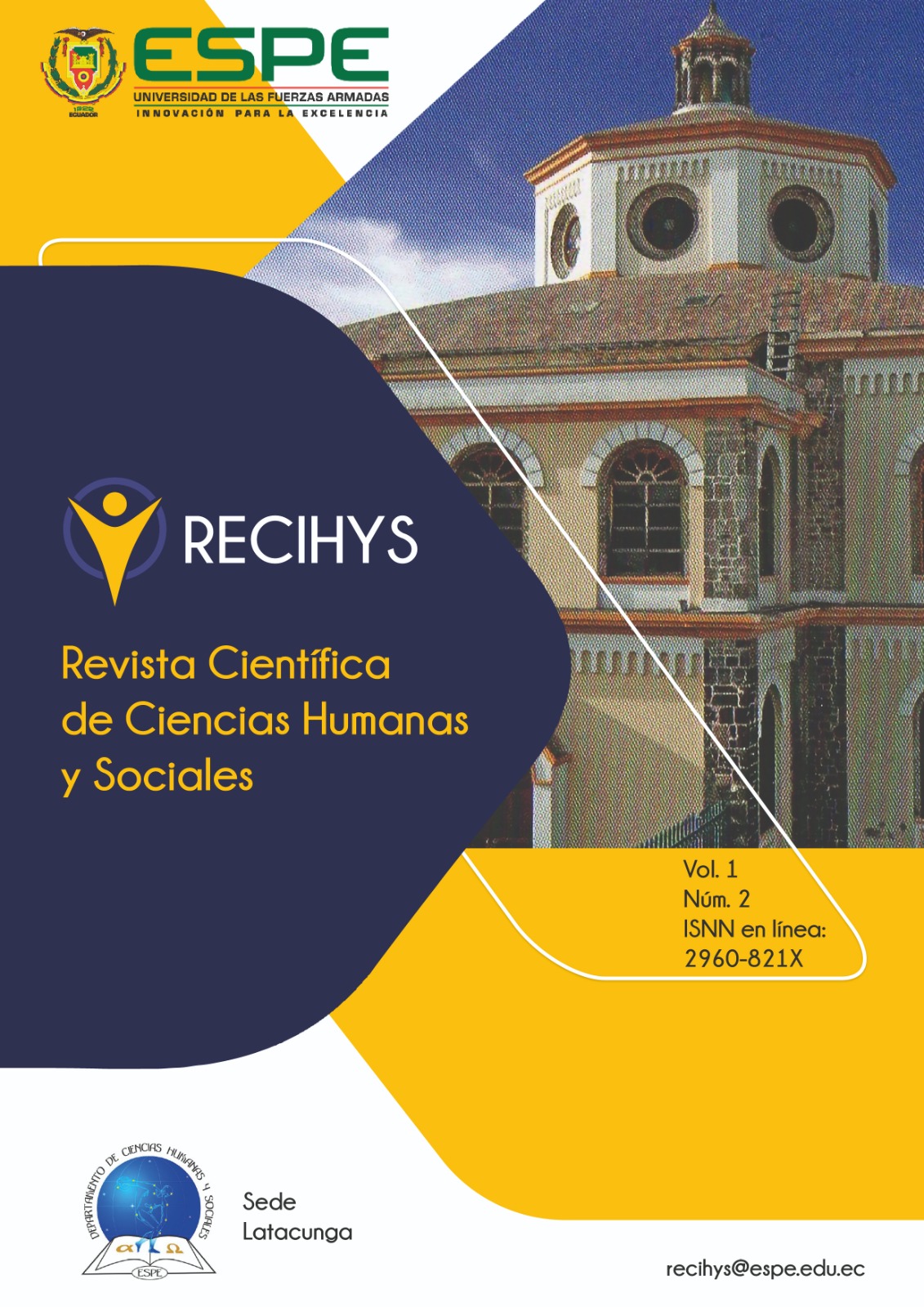Recreation and stress reduction in university students
Main Article Content
Abstract
Introduction. Stress is a reality that affects students manifesting itself in moderate to profound levels. Objective. To decrease the levels of academic stress in students of a Higher Education Institution located in Quito-Ecuador by means of a recreational program. Method. The research method was descriptive, hypothetical-deductive and analytical-synthetic, through a quasi-experimental design. Results. The following frequencies of initial stress levels were obtained: mild (5) with 16,7%, moderate (18) with 60% and deep (7) with 23.3% and after the recreational activities the following post-test was obtained: mild (7) with 23.3% and moderate (23) with 76,7%. Discussion and conclusions. The Student T-test of related samples was used, reaching a significance value of 0,003, demonstrating that the recreational program applied was effective and is considered highly useful to be applied in different periods and students of higher levels.
Downloads
Article Details

This work is licensed under a Creative Commons Attribution-NonCommercial-NoDerivatives 4.0 International License.
Authors who publish in this journal agree to the following terms: Authors retain the copyright and guarantee the journal the right to be the first publication of the work, as well as, licensed under a Creative Commons Attribution License that allows others share the work with an acknowledgment of the authorship of the work and the initial publication in this journal. Authors may separately establish additional agreements for the non-exclusive distribution of the version of the work published in the journal (for example, placing it in an institutional repository or publishing it in a book), with acknowledgment of its initial publication in this journal. Authors are allowed and encouraged to disseminate their work electronically (for example, in institutional repositories or on their own website) before and during the submission process, as it may lead to productive exchanges as well as further citation earliest and oldest of published works.
How to Cite
References
Alfonso, B., Calcines, M., Monteagudo, R., y Nieves, Z. (2015). Estrés Académico. Revista Educación médica del centro, 7 (2),163-164. http://scielo.sld.cu/pdf/edu/v7n2/edu13215.pdf
American Psychological Association. (2010). El estrés es un problema de salud serio en los Estados Unidos. https://www.apa.org/topics/stress/estres-problema
Barraza, A. (2008). El estrés académico en alumnos de maestría y sus variables moduladoras: un diseño de diferencia de grupos. Revista Avances en Psicología Latinoamericana, 26(2), 270-289. https://www.redalyc.org/pdf/799/79926212.pdf
Cabanach, R., Fariña, F., Freire, C., González, P., y Del Mar, M. (2013). Diferencias en el afrontamiento del estrés en estudiantes universitarios hombres y mujeres. European Journal of Education and Psychology, 6 (1),19-32. https://www.redalyc.org/pdf/1293/129327497002.pdf
Castrillón, E., Sarsosa, K., Moreno, F., y Moreno, S. (2015). Estrés académico y sus manifestaciones inmunológicas: La evidencia de la psico-neuro-endocrino-inmunología. Salutem Scientia Spitirus,1(1),19-28. https://revistas.javerianacali.edu.co/index.php/salutemscientiaspiritus/article/view/1358/pdf
Córdova, D., y Irigoyen, E. (2015). Estrés y sus asociación en el rendimiento académico en los estudiantes de la facultad de medicina desde primero a octavo nivel de la PUCE, sede Quito en el período correspondiente de enero a mayo 2015 [Tesis de grado, Universidad Católica del Ecuador]. http://repositorio.puce.edu.ec/handle/22000/8882
Espinoza, J. (2017). Los juegos recreativos en el estrés académico de los estudiantes de octavo año de Educación General Básica de la Unidad Educativa San Alfonso María de Ligorio [Tesis de grado,Universidad Técnica del Ambato]. https://repositorio.uta.edu.ec/handle/123456789/25643
García, R., Pérez, F., Pérez, J., y Natividad, L. (2012). Evaluación del estrés académico en estudiantes de nueva incorporación a la universidad. Revista Latinoamericana de Psicología, 44 (2),143-154. https://www.redalyc.org/pdf/805/80524058011.pdf
Hernández-Sampieri, R., Fernández, C., y Baptista, P. (2014). Metodología de la investigación (6° ed.). Mc Graw Hill. https://www.uca.ac.cr/wp-content/uploads/2017/10/Investigacion.pdf
Montgomery, A. (2016). Recreational participation and perceived stress levels of college students and if leisure satisfaction mediates their relationship [Tesis de grado, Winthrop University]. https://digitalcommons.winthrop.edu/cgi/viewcontent.cgi?article=1031&context=graduatetheses
Pariat, L., Rynjah, A., y M G Kharjana, J. (2014). Stress Levels of College Students: Interrelationship between Stressors and Coping Strategies. Journal of humanities and social science, 19 (8), 40-46. https://www.iosrjournals.org/iosr-jhss/papers/Vol19-issue8/Version-3/F019834046.pdf
Rial, A., y Varela, J. (2008). Estadistica práctica para la investigación en la ciencia de la salud. Netbiblo, S.L. https://books.google.com.ec/books?id=5KdXV7lxHlEC&printsec=frontcover&hl=es#v=onepage&q&f=false
Sábado, J. (2009). Fundamentos de bioestadística y análisis de datos para enfermería. Servei de Publicacions de la Universitat Autonoma de Barcelona. https://books.google.com.ec/books?id=MHgap8IN124C&printsec=frontcover&hl=es#v=onepage&q&f=false

